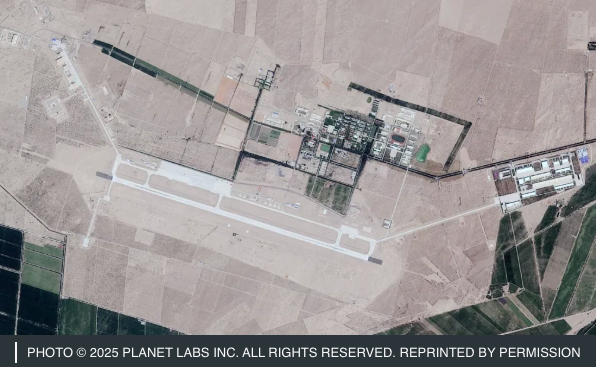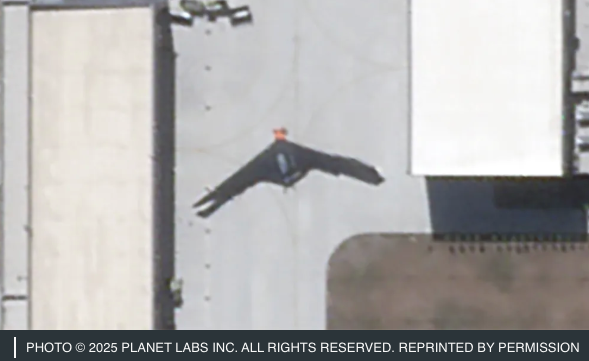The Trump administration's cancellation of $766 million
opens in a new tab or window in contracts to develop mRNA vaccines against potential pandemic flu viruses is the latest blow to national defense, former health security officials said. They warned that the U.S. could be at the mercy of other countries in the next pandemic.
"The administration's actions are gutting our deterrence from biological threats," said Beth Cameron, PhD, a senior adviser to the Brown University Pandemic Center and a former director at the White House National Security Council. "Canceling this investment is a signal that we are changing our posture on pandemic preparedness," she added, "and that is not good for the American people."
Flu pandemics killed up to 103 million peopleopens in a new tab or window worldwide last century, researchers estimate.
In anticipation of the next big one, the U.S. government began bolstering the nation's pandemic flu defenses during the George W. Bush administration. These strategies were designed by the security council and the Biomedical Advanced Research and Development Authority (BARDA) at the Department of Health and Human Services (HHS), among other agencies. The plans rely on rolling out vaccines rapidly in a pandemic. Moving fast hinges on producing vaccines domestically, ensuring their safety, and getting them into arms across the nation through the public health system.
The Trump administration is undermining each of these steps as it guts health agencies, cuts research and health budgets, and issues perplexing policy changes, health security observers said.
Since President Trump took office, at least half of the security council's staff have been laid off or left, and the future of BARDA is murky. The nation's top vaccine adviser, Peter Marks, MD, PhD, resigned under pressureopens in a new tab or window in March, citing "the unprecedented assault on scientific truth."
Most recently, Trump's clawback of funds for mRNA vaccine development put Americans on shakier ground in the next pandemic. "When the need hits and we aren't ready, no other country will come to our rescue and we will suffer greatly," said Rick Bright, PhD, an immunologist and a former BARDA director.
Countries that produced their own vaccines in the COVID-19 pandemic had first dibsopens in a new tab or window on the shots. While the U.S., home to Moderna and Pfizer, rolled out second doses of mRNA vaccines in 2021, hundreds of thousands of people in countries that didn't manufacture vaccines died waiting for them.
The most pertinent pandemic threat today is the bird flu virus H5N1. Researchers around the world were alarmedopens in a new tab or window when it began spreading among cattle in the U.S. last year. Cows are closer to humans biologically than birds, indicating that the virus had evolved to thrive in cells like our own.
As hundreds of herds and dozens of people were infected in the U.S., the Biden administration funded Moderna to develop bird flu vaccines using mRNA technology. As part of the agreement, the U.S. government stipulated it could purchase doses in advance of a pandemic. That no longer stands.
Researchers can make bird flu vaccines in other ways, but mRNA vaccines are developed much more quickly because they don't rely on finicky biological processes, such as growing elements of vaccines in chicken eggs or cells kept alive in laboratory tanks.
Time matters because flu viruses mutate constantly, and vaccines work better when they match whatever variant is circulating.
Developing vaccines within eggs or cells can take 10 months after the genetic sequence of a variant is known, Bright said. And relying on eggs presents an additional risk when it comes to bird flu because a pandemic could wipe out billions of chickens, crashing egg suppliesopens in a new tab or window.
Decades-old methods that rely on inactivated flu viruses are riskier for researchers and time-consuming. Still the Trump administration invested $500 millionopens in a new tab or window into this approach, which was largely abandoned by the 1980s after it caused seizures in children.
"This politicized regression is baffling," Bright said.
A bird flu pandemic may begin quietly in the U.S. if the virus evolves to spread between people but no one is testedopens in a new tab or window at first. Indeed, the CDC's dashboard suggests that only 10 farmworkers have been tested for bird flu since March. Because of their close contact with cattle and poultry, farmworkers are at highest risk of infection.
As with many diseases, only a fraction of people with bird flu become severely sick. So the first sign that the virus is widespread might be a surge in hospital cases.
"We'd need to immediately make vaccines," said Angela Rasmussen, PhD, a virologist at the University of Saskatchewan in Canada.
The U.S. government could scale up production of existing bird flu vaccinesopens in a new tab or window developed in eggs or cells. However, these vaccines target an older strain of H5N1 and their efficacy against the virus circulating now is unknown.
In addition to the months it takes to develop an updated version within eggs or cells, Rasmussen questioned the ability of the government to rapidly test and license updated shots, with a quarter of HHS staff goneopens in a new tab or window. If the Senate approves Trump's proposed budget, the agency faces about $32 billion in cuts.
Further, the Trump administration's cuts to biomedical research and its push to slash grant money for overhead costs could undermine academic hospitals, rendering them unable to conduct large clinical trials. And its cuts to the CDC and to public health funds to states mean that fewer health officials will be available in an emergency.
"You can't just turn this all back on," Rasmussen said. "The longer it takes to respond, the more people die."
Researchers suggest other countries would produce bird flu vaccines first. "The U.S. may be on the receiving end like India was, where everyone -- rich people, too -- got vaccines late," said Achal Prabhala, a public health researcher in India at medicines access group AccessIBSA.
He sits on the board of a World Health Organization initiativeopens in a new tab or window to improve access to mRNA vaccines in the next pandemic. A member of the initiative, the company Sinergium Biotech in Argentina, is testing an mRNA vaccine against the bird flu. If it works, Sinergium will share the intellectual property behind the vaccine with about a dozen other groups in the program from middle-income countries so they can produce it.
The Coalition for Epidemic Preparedness Innovations (CEPI), an international partnership headquartered in Norway, is providing funds to research groups developing rapid-response vaccine technology, including mRNA, in South Korea, Singapore, and France. And CEPI committed up to $20 million to efforts to prepare for a bird flu pandemic. This year, the Indian government issued a call for grant applications to develop mRNA vaccines for the bird flu, warning it "poses a grave public health risk."
Pharmaceutical companies are investing in mRNA vaccines for the bird flu as well. However, Prabhala says private capital isn't sufficient to bring early-stage vaccines through clinical trials and large-scale manufacturing. That's because there's no market for bird flu vaccines until a pandemic hits.
Limited supplies means the U.S. would have to wait in line for mRNA vaccines made abroad. States and cities may compete against one another for deals with outside governments and companies, like they did for medical equipment at the peak of the COVID-19 pandemic.
"I fear we will once again see the kind of hunger games we saw in 2020," Cameron said.
In an email response to queries, HHS communications director Andrew Nixon said, "We concluded that continued investment in Moderna's H5N1 mRNA vaccine was not scientifically or ethically justifiable." He added, "The decision reflects broader concerns about the use of mRNA platforms -- particularly in light of mounting evidence of adverse events associated with COVID-19 mRNA vaccines."
https://www.medpagetoday.com/infectiousdisease/birdflu/116043








